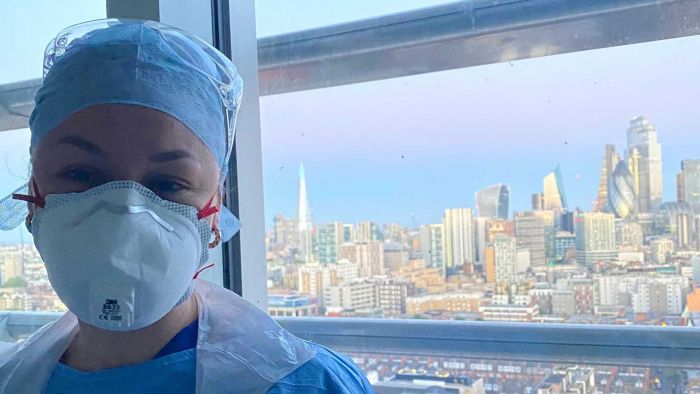Joining countless other travel-hungry Australians in their 20s, Kathryn Lennon moved to London at the end of last year to find an easy job and set up a base from which she could see the world.
Fast forward a few months and she found herself working in intensive care at two of London’s busiest teaching hospitals in the middle of a pandemic.
Having trained as a paramedic and working as a registered nurse in the intensive care unit at Brisbane’s Princess Alexandra Hospital, Kathryn had seen her fair share of stressful shifts.
But she says nothing compares to the scale of what she’s seen since coronavirus took hold in early March.
Over the past couple of months, Kathryn has been sharing snippets of her day-to-day life with family and friends back home in Australia, in an effort to explain how important it is to stay at home and stop the spread and why so many people are ending up in intensive care units with COVID-19.
The majority of people who get COVID-19 will have a mild-to-moderate illness that lasts a few weeks.
But according to the World Health Organization, 15 per cent of cases are severe infections that require oxygen and 5 per cent are critical infections, requiring ventilation. That’s when people end up in ICU.
“In very simple terms, your lungs are not able to spread the oxygen around your body because they are acutely inflamed and therefore the rest of your body is no longer able to receive an adequate amount of oxygen to sustain your life,” Kathryn explained to her friends over Instagram.
“This only happens in severe cases, and severe cases will go into intensive care because [that’s where] nurses know how to work a ventilator, which is essentially a breathing machine that we’re putting you on to rest your lungs and do the work for you.
“That’s why it’s really important to support intensive care units. We’re finding with this disease especially that either you get the disease and you fully recover or you get the disease and you’re really, really s

